Back to School Tips to Help Your Child with Dyslexia
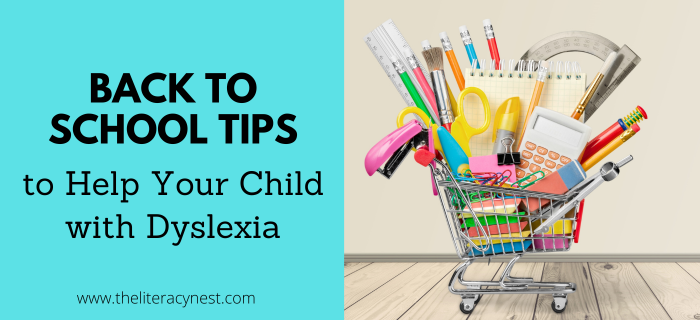
The beginning of a new school year is a time of very mixed emotions for many kids. Excitement about a new grade and new experiences blends with feelings of nervousness. For children who struggle academically, these feelings of anxiety can be multiplied both for the child and the parent. To smooth the transition, there are a few things that you can do to help your child with dyslexia and your child’s new teacher.
Here are Six Back-to-School Tips to Help Your Child with Dyslexia
1. Keep an open dialogue.
It is essential that your child feel able to talk with you about their school concerns. You are their biggest cheerleader and the one most able to advocate on their behalf. Talking with your child about their problems can help you address them together and set them up for a successful back-to-school season. Talk to your child about what they most want their new teacher to know about them as a student.
This dialogue is equally important with your child’s teacher. Meet with your child’s teacher before school starts or write an email. Introduce yourself, talk about what your child may have had for tutoring over the summer, and tell the teacher the most important thing to know about your child as a learner. Perhaps your child fears being put on the spot, and only wants to be called on when their hand is raised. Perhaps there are some tools or strategies they find particularly helpful that you would like available from day 1. This is also an opportunity to include a copy of your child’s IEP with accommodations.
2. Organize for success.
Students with dyslexia not only struggle with reading and writing, but many also have organizational challenges. ADHD is often something that people with dyslexia also need to deal with. Create a homework station at home. Keep a set of tools that your student needs at home, so they are available. This can be as simple as a special pencil box or a whole desk. Having a dedicated space for homework materials will avoid a frantic search for a pencil at the end of a long day.
For your organization, it is helpful to create or update an IEP binder for the new year. Having important paperwork at your fingertips frees you up to focus on advocating for your child.
- For more details and to download free organizers, check out Understood.org!
3. Say Dyslexia.
In the past few years, social media has used the hashtag, #saydyslexia. For too long, learning disabilities have had a stigma and have been spoken about in hushed tones. Teaching yourself about dyslexia, teaching your child about dyslexia, and educating your child’s teachers about dyslexia can help to break this cycle.
Learn more about the power of saying the word dyslexia. Listen to season 3, episode 2 of the Together in Literacy podcast, How to Talk About Dyslexia!
Students gradually need to become self-advocates and that starts with understanding that they are smart, capable students whose brains work a little differently. Make it a goal to teach your child’s teacher a little bit about dyslexia at least a few times this year. Sharing articles, pamphlets, infographics, and specific information about how to help your child can improve not only your child’s experience but the other 1 in 5 students who also have reading challenges.
To learn more about self-advocacy, read Tips for Teaching Self-Advocacy Skills!
4. Encourage areas of Success.
Many students with dyslexia and other learning challenges may struggle with traditional school subjects, but excel in areas such as art, music, athletics, or science. If your child has found their passion, be sure to encourage this area of success and make time for it. It can be tempting if a child is struggling to cut out extracurricular activities and buckle down on academics, but for a student with dyslexia, their area of success and talent is hugely important to their self-esteem and continued motivation.
5. Practice with assistive technologies.
Whenever possible, give your child an opportunity to practice with assistive technologies such as text-to-speech or speech-to-text at home. In a busy classroom, your child’s teacher is unlikely to have had an opportunity to become an expert with these tools and may not have an opportunity to help with the basic functions. This is an area where our children can become experts and self-advocate.
6. Traditional Back-to-School Tips.
In addition to these dyslexia-specific ideas, the usual back-to-school tips are also great to keep in mind. Things such as visiting the classroom with your child, beginning to adjust from a summer schedule to earlier wake times, getting school supplies ready, scheduling a playground playdate with some of your child’s classmates, getting excited for the first day of school with a fresh haircut or special outfit, and making the most of the perfect end of summer days will help to pave the way to a smooth school transition.
School is often not a happy place for children with dyslexia. One of the biggest factors that make a difference in a dyslexic child’s success is a supportive parent. Be your child’s biggest advocate, their best cheerleader, and as they are learning, sometimes even their personal secretary.
As your school year schedule comes together with schoolwork, areas of success, and tutoring in place, there is one more important step you can take to support your child. Make time to read age-appropriate books to your child or listen to them together as audiobooks. Listening to good children’s literature exposes our kids to loads of vocabulary and language structures far beyond what conversations alone can manage. Listening to Percy Jackson or Harry Potter can also keep them tuned in with their peers so they don’t feel left out.
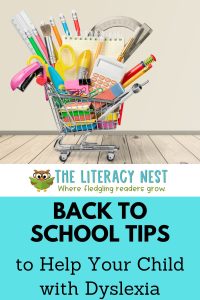
Back to School Decodable Readers
These Back to School are perfect to share with your dyslexic students at the beginning of the school year. They follow an Orton-Gillingham progression to support your Orton-Gillingham lesson plans. Your students will practice their decoding and fluency skills while enjoying fun back-to-school and fall-themed stories.
You can grab it at The Literacy Nest Shop.

Are you looking for a list of words to use in your Orton-Gillingham lessons? Word List Builder has got you covered!
Save time searching for words to use in your lessons! Create customized and meaningful review, build your folder of words, create templates and games, and much more in Word List Builder.

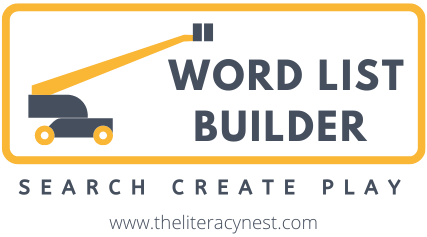

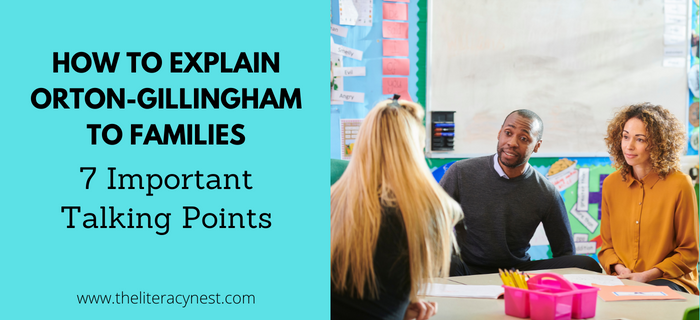

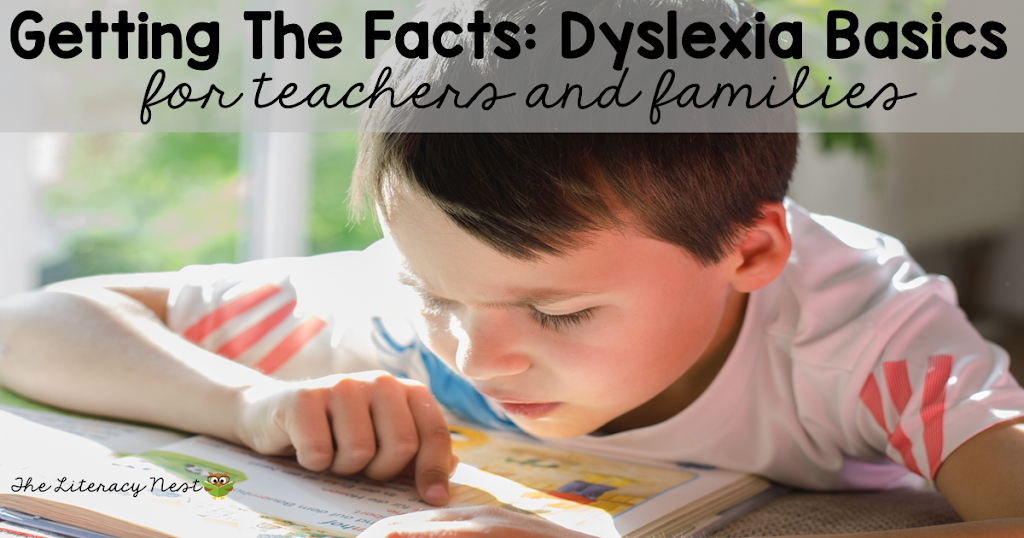
This is some really good information about dyslexia and schooling. My little nephew has some issues with dyslexia. So, I liked that you explained that it would be smart to look for programs that can assist him with technology. He loves tech so that could help keep him motivated.
Hi Penelope! Assistive tech can work really well for lots of kids!